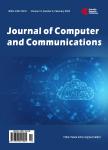版权所有:内蒙古大学图书馆 技术提供:维普资讯• 智图
内蒙古自治区呼和浩特市赛罕区大学西街235号 邮编: 010021

作者机构:Department of Computer Science Chancellor College University of Malawi Zomba Malawi Mathematical Sciences Department Chancellor College University of Malawi Zomba Malawi Department of Cyber Security Kyungil University Kyungbuk Korea.
出 版 物:《Journal of Computer and Communications》 (电脑和通信(英文))
年 卷 期:2020年第8卷第1期
页 面:45-70页
学科分类:08[工学] 0812[工学-计算机科学与技术(可授工学、理学学位)]
主 题:Home Area Network Security Privacy Internet of Things Delegation
摘 要:The Internet of things (IoT) can be used in our daily life. Home area network (HAN) is one of the applications of loT. However, deploying HAN for underdeveloped countries in Africa is not easy due to the lack of Internet connectivity and stable electricity. First of all, Internet in Africa is growing fast but the majority of countries in Africa have Internet penetration of less than 10%. Furthermore, the problem of accessing electricity varies greatly across African countries, which is still less than 30% of the average usage rate. The aim of this paper is to model a secure HAN based on IoT for resource constraints environment, which are focused on both network connectivity and energy stability. Poor connectivity, the prevalence of low-end devices and several other obstacles should be considered for the secure HAN deployment in developing and underdeveloped countries. The proposed HAN model will provide the resource constraints module composed of network connectivity function and energy stability function to support the two constraints based on the IoT basic module and the security and privacy module. The proposed HAN model could be securely applied to various countries HAN applications with poor electricity supply and network connectivity.